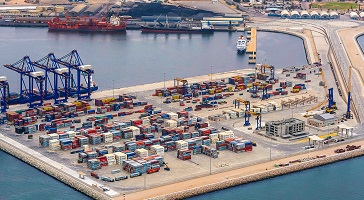
Mid-Term Budget Review 2019/20: Credibility of promises and implementation become questionable -analyst

The Minister of Finance, Calle Schlettwein delivered the Mid-Term Budget for the 2019/20 financial year at Cabinet on Tuesday, and analysts are questioning the credibility of the budget promises and implementation thereof.
From a revenue and expenditure perspective, Schlettwein delivered a neutral mid-term budget, with the mid-term outturn seeing 50% or N$29.4 billion (of N$58.4 billion) in revenue collected, partly on the back of an increase in the fuel and plastic levies which led to an increased consumption tax during the period under review. Taxes on individuals and profits have also recorded a slight improvement (1.7% rise) compared to the initial projections.
The half-year expenditure execution was N$30.6 billion, 46% of the budget. The half-year non-interest operational budget expenditure execution, including expenditure commitments was 52%, while the development budget implementation rate at the end of September 2019 was 37%.
The ministry has decided to reallocate about N$1.18 billion within the budget., which comprises N$176.3 million realised from the operational budget on personnel emoluments, and N$999.5 million from the development budget. For the development budget, freed-up resources were realised from capital projects with a slow implementation pace or yet to be implemented.
Indileni Nanghonga, Junior Analyst at Simonis Storms said they are of the view that there are continuous shifts in the implementation of certain vital targets, including the Namibia Revenue Agency and the Public-Private Partnership Act, among others.
“The proposed multi-faceted investments in SME development and entrepreneurship through the capitalization of Development Bank of Namibia and AgriBank coupled with the various aid schemes is a positive contributor in the speech. Gauging from the past, we wait in anticipation for its full implementation,” Nanghonga said.
Simonis Storms noted that poor execution of the developmental projects has become common practice, contrary to the country’s vision (Harambee Prosperity Plan, NDP5 and Vision 2030) towards sustainable economic growth and job creation as we believe that the sought-after growth will be achieved by an increase in productive capital expenditure.
With much emphasis on increasing foreign direct investment and providing ease of doing business, the firm further believes that the re-tabling of the dividend tax is still a deterrent to investments.
“These issues have been raised repeatedly without resolutions. We urge government to manage down the debt levels, reform unproductive state-owned enterprises and promote an effective work ethic in government. It is becoming even more difficult to make the tough decisions as the situation worsens,” Nanghonga said.










































